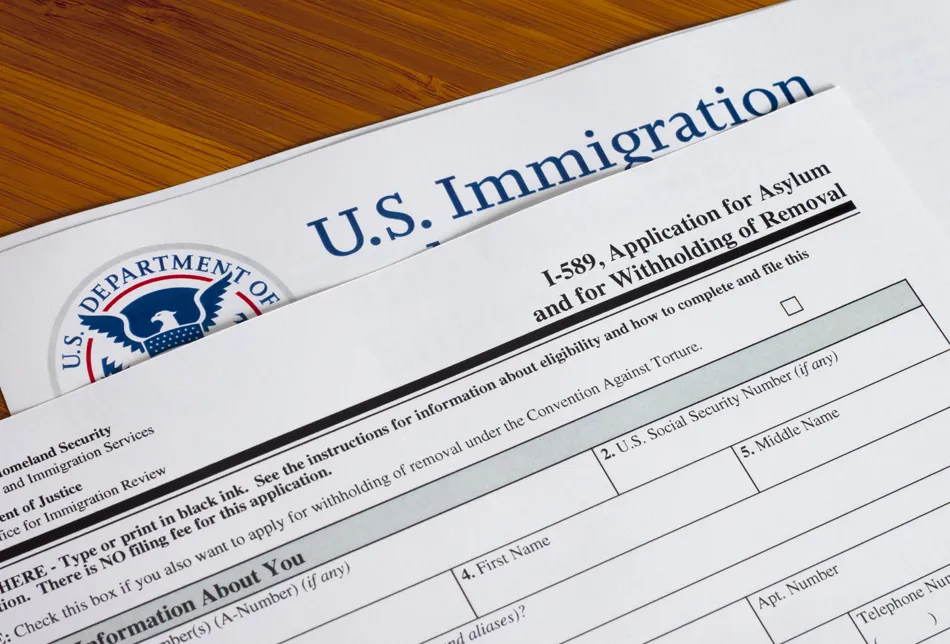- Call Us Today
- 213-234-9592
- confidential consultation

While there are many grounds for deportation, this is a brief summary of the most common grounds.
This is one of the most common reasons for which individuals are placed in deportation proceedings. Being convicted of certain crimes can trigger a deportation proceeding even though the defendant was convicted of a misdemeanor and did not serve anytime in prison. In addition, any drug conviction is always problematic.
All non-U.S. Citizens who are living in the U.S. could be subject to deportation if they violate the terms of their stay or commit certain crimes. Even individuals who have been legal permanent residents for many years can still be placed into deportation proceedings if they violate the terms of their stay. On the other hand, U.S. Citizens cannot be placed in deportation nor can they be denied entry into the United States. Therefore, it is advisable that persons eligible to apply for citizenship do so as soon as they are can.
When an immigrant (whether a legal permanent resident or not) is confronted with a criminal proceeding, he or she should immediately consult with an immigration practitioner to understand the possible consequences of the pending criminal charge and take precautionary steps before entering into a plea. The immigration lawyer can work along the side of the criminal defense attorney to protect the immigration rights of the defendant. In California and under PC 1016.5, a defendant is not required to disclose his or her immigration status to the court and the court is required to provide immigration advisals before a guilty or no contendere plea is entered. A defendant should inform his or her criminal defense attorney of their legal status so appropriate steps can be taken.
A person who violates his non-immigrant or immigrant status is subject to deportation. This includes but is not limited to, entry without inspection, overstaying of a non-immigrant visa, unauthorized employment, violating the terms of a student visa, failure to apply for removal of conditional residency, and alien smuggling.
A person is subject to deportation if he or she engages in unlawful voting, engages in activities that violate U.S. laws, falsely claims to be a U.S. citizenship, engages in document fraud, fails to notify immigration of a change of address and fails to register, or was inadmissible to the U.S. at time of entry. A person could also be placed in deportation proceedings on the basis of economic grounds.
A person in deportation proceedings can assert several defenses to the charge of deportability. In Woodby v. INS, 385 U.S. 276 (1966), the United States Supreme Court held that in deportation proceedings, the government has the burden of proving by “clear, unequivocal, and convincing evidence that the facts alleged as grounds for deportation are true.” To determine the appropriate defense to a deportation case, the factual basis of each case must be examined to determine the appropriate challenges to the government evidence.
Voluntary Departure occurs when the person who is being charged with deportation (“Respondent”) agrees to depart from the United States without a departure order. There are two main types of Voluntary Departure:
Failure to comply with a Voluntary Departure grant can result in severe civil penalties including a fine and ineligibility for the period of 10 years from applying for adjustment of status and other relief.
To qualify for this relief, Respondent must have been a Legal Permanent Resident for 5 years, has resided in the U.S. continuously for 7 years, has not been convicted of an aggravated felony. Certain categories of individuals are ineligible for cancellation of removal. Once cancellation of removal is granted, the Respondent is restored to legal Permanent Resident status previously held.
To qualify for this relief, Respondent must show that he has been physically present in the U.S. for a period of 10 years from the date of the application, the Respondent must have been a person of good moral character, has not been convicted of certain crimes, and must show that exceptional and extreme hardship will be caused to a U.S. Citizen or Legal Permanent Resident spouse, parent, or child if they were removed. Certain categories of individuals are ineligible for cancellation of removal.
A Respondent may apply for relief from deportation if he or she had an immigrant visa that is immediately available, are admissible, have entered the U.S. lawfully or are covered under the provision of 245(i).
A person in deportation proceedings is also eligible to assert asylum claims.
Contact us today to schedule a consultation with our Burbank deportation defense lawyer.